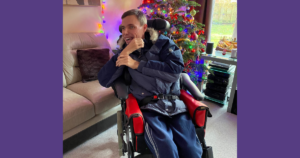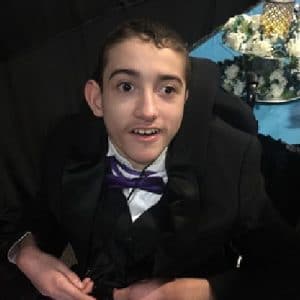Camila
Share This Post
Hi, my name is Camila and this is how my story began.
I was born in February 2020 in Quito-Ecuador, just before the pandemic shut down the world. My parents had trouble conceiving a baby a year before and they were anxious to have a family. My mommy’s pregnancy process was not easy, morning sickness was constant for almost 6 months, but she was always determined to make me feel as cozy as possible until I was born. Then on February 2020, about 37 weeks into my mommy’s pregnancy I decided it was time to come to the world. An emergency c-section was performed and a couple of hours later I finally met mom and dad. Joy can’t describe the feeling I had; love was instant the minute we saw each other.
After a few days at the hospital with an oxygen tank as a parting gift, I went home. Doctors did not understand why I kept needing oxygen, but it kept me happy for about 20 days until I did not need it anymore. Everything was perfect, well, to be fair my parents did have a lot of care with me because I was their first baby and those long pandemic days were spent with me intimately. I couldn’t meet my grandparents and uncles the normal way. I could only see them on an electronic device, and I did not understand at the time who they were. Still, I tried to remember them in my way every time they got connected, they felt like special people in my life, they felt like family.
When I was barely 3 months old, mom was worried and tried to explain to the doctor her concerns; I hated tummy time, I did not lift my head and I was not very interested in toys or games. But the doctor said I was still developing, and those little things could get better with time and lots of stimulation. Mom and dad began early stimulation programs through electronic devices (because of the pandemic), but nothing seemed to interest me, and my baby friends comparable to my age were advancing by leaps and bounds.
So, at six months old, against any doctor’s advice mommy took me to my first neuro-pediatrician evaluation. The doctor saw some delays in my fine and gross motor development, and I did develop a flat head for staying too long in my back. There was a red flag there. But still the doctor insisted that stimulation was the only thing I had to be encouraged to do.
Time passed, when I turned 1 year old, mom and dad kept noticing I was missing and kept missing a lot of my development milestones. Mom was worried about a potential outcome: autism, but no doctor would even let her talk about this topic at my age. My mommy and daddy were very disappointed and frustrated at the lengths doctors would go to avoid this topic.
So, my first year became a circus of doctors, neuro-pediatricians, and therapists. My parents never let off their guard, stimulation was and is the basis of my progress. But they relentlessly continued researching for a diagnosis that would explain for my low muscle tone, my feeding problems, my lack of interest in interaction and social communication and overall, for my missing development milestones, including major milestones like sitting unassisted, and not having the ability to crawl and eventually walk.
At my 2-year-old mark and after various exams, MRIs, EEGs, blood tests, 2 genetic exams, and a couple of hospital stays, my neuro-pediatrician finally decided to reach a diagnosis: I had a disorder called GRIN1. Wow! Finally, a diagnosis mom could dig into. But not so fast mom! The doctor said it’s a rare genetic disorder and it’s the first time he hears about it; and there is no cure or treatment for it yet.
What a bittersweet answer for my parents. Now mom and dad are worried again. But not one day has passed my parents did not address my disorder with constant stimulation therapy. Even when doctors were quick to dismiss my disorder as ‘still developing’ or ‘laziness’ my parents always took the initiative and insisted on therapy sessions to help me grow.
At this point in time, my parents have searched all kinds of information on the Internet, there is not much to say the least. Especially because not all cases are the same and detection is relatively novel. GRI genetic disorders are widely different throughout individuals and there is no evident pattern to follow. And even with the information available, seems I got stuck with a hereditary variation which is even more rare.
My parents are grateful they were able to find THE CURE GRIN FOUNDATION. It is a channel for many families around the world to share their experiences and advance research related to GRI disorders.
But my story has not ended yet, I love swimming, I love dancing and I love horseback riding and I am eager to continue developing against all odds with the help of my parents and family. My parents even got me a little brother to mess around with, I have made him my accomplice in mischief, and I love him for it. I am a warrior-princess that might not be verbal or independent YET, but I will always start my day with a smile on my face and I always find ways for my parents to understand that I am here! And that I am stronger every day!


